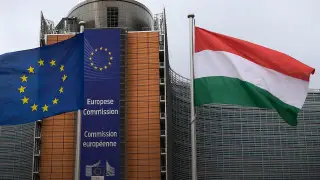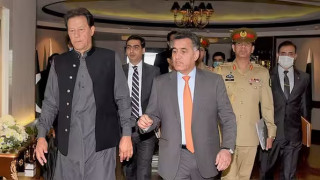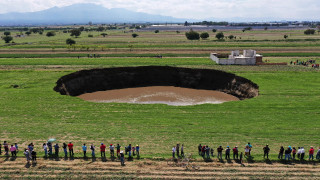
X
In a decisive electoral victory,on Saturday, Asif Ali Zardari was elected as the 14th President of Pakistan, marking a significant moment in the nation's political landscape. The culmination of a closely watched election process has solidified Zardari's position as the new head of state, bringing with it a host of expectations and challenges.
Mahmood Khan Achakzai, 75, was the candidate of the Sunni Ittehad Council (SIC), whereas Zardari, 68, was the joint candidate of the Pakistan Muslim League-Nawaz (PML-N) and the Pakistan Peoples Party (PPP).
The electoral process unfolded with meticulous precision, as millions of Pakistani citizens exercised their democratic right to vote. Asif Ali Zardari, a seasoned politician with a rich political legacy, emerged as the favored candidate, navigating a competitive field to secure the presidency. In the National Assembly and the Senate, he garnered 255 votes, while his opponent received 119.
Asif Ali Zardari's political journey has been one of resilience and adaptation. Hailing from a prominent political family, Zardari's rise through the ranks has been marked by his ability to navigate the complex and often tumultuous political terrain of Pakistan. His previous experiences in key political roles have undoubtedly shaped his leadership style and approach to governance.
As the 14th President of Pakistan, Asif Ali Zardari faces a myriad of challenges that require adept leadership and strategic decision-making. From economic concerns to regional security issues, the president-elect will need to steer the nation through a variety of pressing matters to ensure stability and progress.
One crucial aspect of Zardari's presidency will be the management of Pakistan's international relations. The global stage presents opportunities and challenges that demand diplomatic finesse and a keen understanding of geopolitical dynamics. Zardari's approach to international affairs will undoubtedly shape Pakistan's standing in the global community.
The economic landscape of Pakistan remains a focal point for the incoming president. Asif Ali Zardari will need to address issues such as fiscal policies, unemployment, and infrastructure development to stimulate economic growth. Crafting effective strategies to tackle these challenges will be paramount to fulfilling the aspirations of the Pakistani people.
A key aspect of Zardari's presidency will be fostering unity and inclusivity within the diverse fabric of Pakistani society. The president-elect's commitment to creating a harmonious and inclusive environment will be instrumental in addressing social disparities and building a stronger, more cohesive nation.
As Asif Ali Zardari assumes the mantle of the 14th President of Pakistan, the nation stands at a critical juncture in its history. The challenges ahead are numerous, but with a proven political track record, Zardari brings a wealth of experience to the table.













Copyright © 2025 Top Indian News
